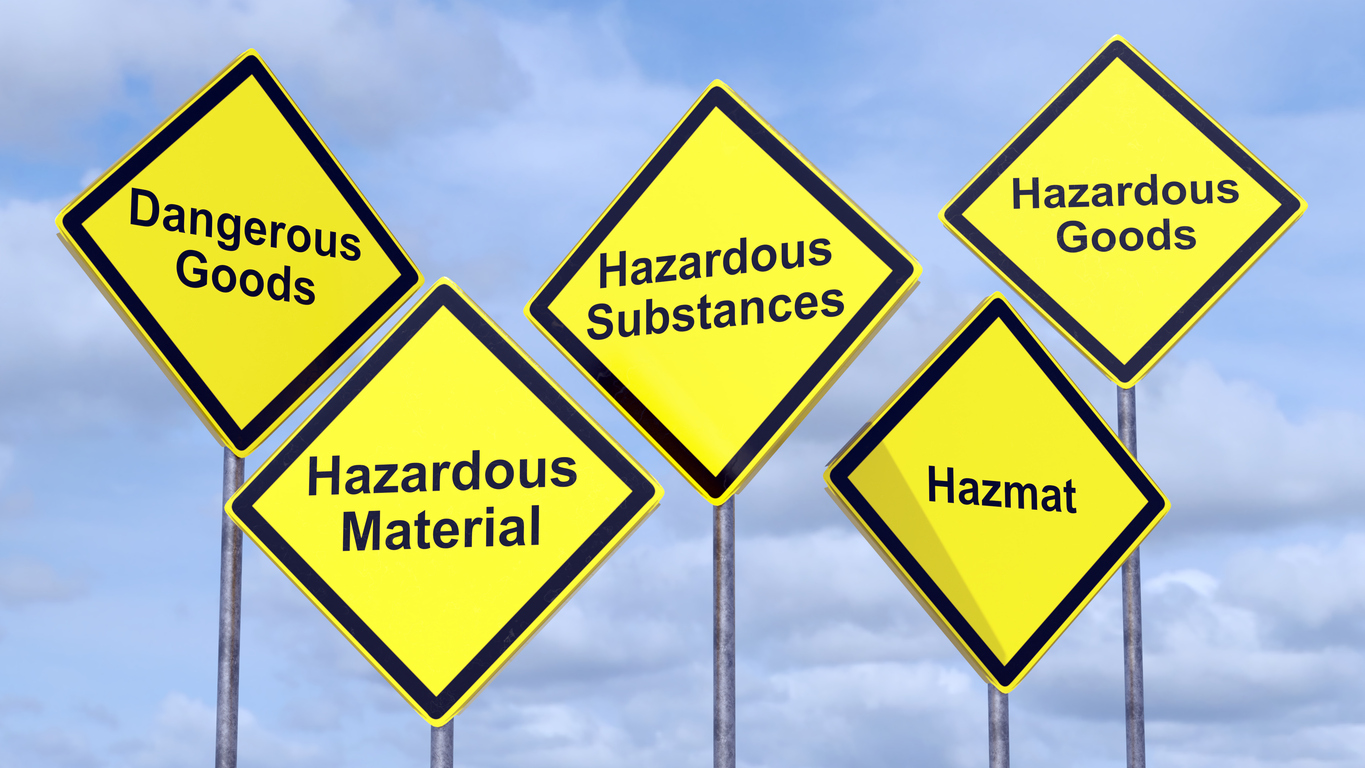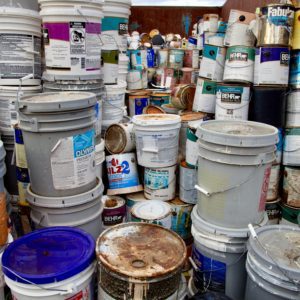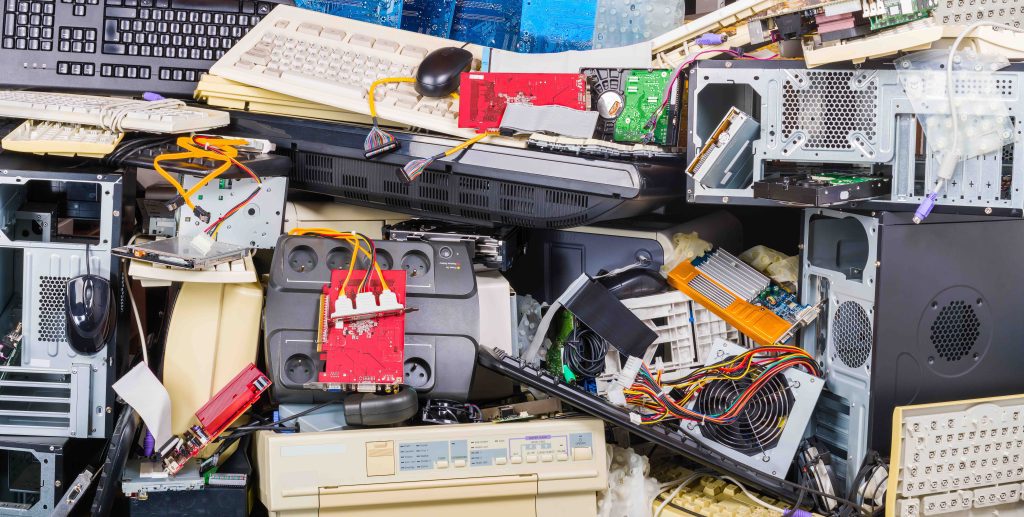HAZARDOUS WASTE RECYCLING

Hazardous Waste Recycling
Hazardous waste recycling is possible even though it can pose significant risks to human health and the environment if not managed properly. HazChem can fill all your hazardous waste disposal needs. Many types of hazardous waste can be recycled, reducing their environmental impact and conserving resources. You may also combine your hazardous waste recycling with any other paper/cardboard, plastic, pallets, e-waste or other industrial recycling you have to streamline dock pickups. Here are some common types of hazardous waste that can be recycled by HazChem Environmental:
1. Used Oil
- Description: Includes motor oil, hydraulic oil, transmission fluid, and other lubricants.
- Recycling Process: Used oil can be re-refined into base stock for new lubricating oil, processed into fuel oils, and used as raw materials for the petroleum industry.
2. Batteries
- Types: Lead-acid batteries, nickel-cadmium (Ni-Cd) batteries, lithium-ion (Li-ion) batteries, and alkaline batteries.
- Recycling Process:
- Lead-Acid Batteries: Recovered lead can be reused in new batteries, and sulfuric acid can be neutralized or converted to sodium sulfate.
- Ni-Cd and Li-Ion Batteries: Metals such as nickel, cobalt, and lithium are recovered and reused in new batteries or other products.
3. Electronic Waste (E-Waste)
- Description: Discarded electronic devices such as computers, smartphones, televisions, and printers.
- Recycling Process: Valuable materials like gold, silver, copper, and plastics are extracted and reused in manufacturing new electronic devices and other products.
4. Fluorescent Lamps and Light Bulbs
- Description: Contain mercury and other hazardous substances.
- Recycling Process: Mercury and other metals are recovered and reused, while glass and metal components are recycled separately.
5. Solvents
- Description: Used in industrial processes and cleaning applications, solvents can include acetone, xylene, and methylene chloride.
- Recycling Process: Solvents can be distilled and purified for reuse in industrial processes or as fuel.
6. Paint and Paint-Related Products

- Description: Includes leftover paints, varnishes, and paint thinners.
- Recycling Process: Paint can be reprocessed into new paint products, used as fuel, or the solvents can be recovered and reused.
7. Antifreeze
- Description: Used in vehicles and machinery to prevent freezing and overheating.
- Recycling Process: Contaminants are removed, and the antifreeze is restored to its original properties for reuse.
8. Pesticides and Herbicides
- Description: Chemicals used to kill pests and control weeds.
- Recycling Process: Some pesticides and herbicides can be reprocessed and reused, or the chemicals can be used in other industrial processes.
9. Mercury-Containing Devices
- Types: Thermostats, thermometers, and switches.
- Recycling Process: Mercury is extracted and purified for reuse in new devices or other applications.
10. Aerosol Cans
- Description: Contain pressurized liquids and gases, such as paint, lubricants, and cleaners.
- Recycling Process: Contents are safely removed and managed, and the metal cans are recycled.
11. Pharmaceutical Waste
- Description: Expired or unused medications.
- Recycling Process: Some pharmaceutical waste can be processed and used in the production of new medications, while others can be used for energy recovery.
12. Photographic Chemicals
- Description: Used in film processing, including developers and fixers.
- Recycling Process: Silver can be recovered from photographic chemicals and reused in various industries.
Benefits of Recycling Hazardous Waste
- Environmental Protection: Reduces pollution and conserves natural resources by recovering valuable materials.
- Energy Conservation: Saves energy compared to producing new materials from raw resources.
- Economic Benefits: Reduces disposal costs and can generate revenue from the sale of recycled materials.
- Regulatory Compliance: Helps businesses comply with environmental regulations and reduce liability.
By recycling hazardous waste, we can mitigate its adverse effects, promote sustainability, and contribute to a healthier environment.
It is Illegal in Illinois to Throw Some Electronic Devices into the Trash
To see a list of these items, please visit the electronics recycling page on the Illinois EPA website. Why is it illegal for these devices to go into a landfill? Electrical and electronic products contain hazardous materials. To protect our environment, these materials should not be entering into our land and water. Also, valuable metals may also be found in these devices such as copper, zinc, gold, silver, platinum, nickel and cobalt. These metals can be recycled and re-used in order to reduce waste and to promote sustainability and a circular economy.

Our Team is always ready to deploy, 24 hours a day, 365 days per year, rain or shine, including holidays. We do not rely on automated answering systems for our main phone line (630) 458-1910. Instead, we guarantee that a live person will answer your call, regardless of whether it is a weekend, holiday, or any other day.
Combining Recycling Services with other industrial waste disposal is more efficient. Learn about our other Industrial Recycling, Cardboard Recycling, Commercial Plastic Recycling and View other HazChem Services.

Compliant. Responsive. Safe.
Call 630-458-1910 for immediate assistance. Open 24/7/365
For a FREE, no-obligation quote, click the button below
